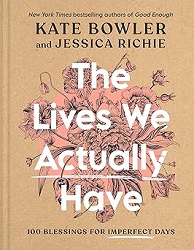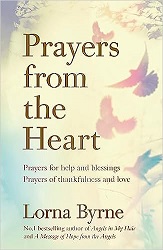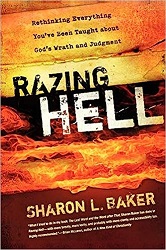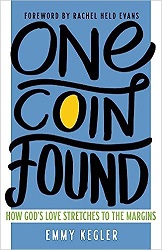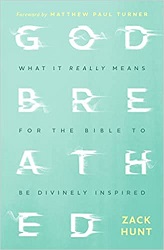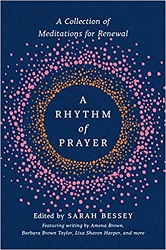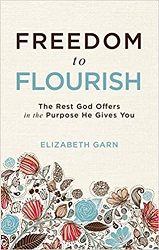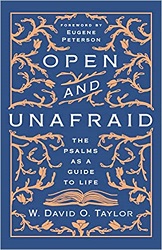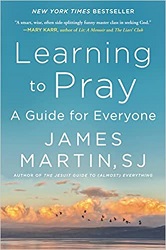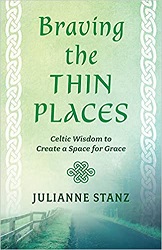Review of The Lives We Actually Have, by Kate Bowler and Jessica Richie
100 Blessings for Imperfect Days
by Kate Bowler and Jessica Richie
Convergent Books, 2023. 229 pages.
Review written September 8, 2023, from my own copy, purchased via Amazon.com.
Starred Review
I purchased this book because of a recommendation on Sarah Bessey’s Substack and was absolutely delighted with it. And then I discovered this is the same author who wrote the wonderful book Everything Happens For a Reason (And Other Lies I’ve Loved). And I sat down and ordered a couple more of her books before writing this review.
What I found in this book is a perfect addition to my morning devotional time. I’d read one blessing on one spread. The next day, I’d read the previous day’s blessing over again and then move on to the next one. Lots of profound wisdom, solidarity — and blessing — was the result.
The situations in the book feel real, not sanitized. This makes sense when I realize this is the same author who wrote about getting terminal cancer at 35 years of age.
Here are some examples of some of the headings for these blessings:
“for this ordinary day”
“for when you just need to put one foot in front of the other”
“for when you are looking for love (and it’s complicated)”
“for this tired day”
“for when you’re running on fumes”
“for when you’re hanging on by a thread”
“for friends who hold us up”
“for when it’s been a great day”
“for when the unthinkable happens”
“for collective grief”
“for all the firsts without a loved one”
“for this overwhelming day”
“for when you can’t catch a break”
“for the gift of doubt”
“for this painful day (and our bodies feel like the enemy)”
“for when your family disappoints you”
“for when you can’t love yourself”
“for when you’re not getting any better”
“for this beautiful, limited day”
“for learning to delight again”
“for the life you didn’t choose”
And there’s so much more! But just listing so many situations doesn’t show you how beautifully these authors deal with them. Let me show a few examples.
Here’s the beginning of the first one: “for this ordinary day”:
Lord, here I am.
How strange it is,
that some days feel like hurricanes
and others like glassy seas
and others like nothing much at all.Today is a cosmic shrug.
My day planner says,
rather conveniently,
that I will not need you,
cry for you, reach for you.Ordinarily, I might not think of you at all.
Except, if you don’t mind,
let me notice you.Show up in the small necessities
and everyday graces.God, be bread.
Be water.
Be laundry.
This is from “for feeling it all“:
So, you beautiful creature,
here is your permission slip to feel it all.
To feel the joy and delight and excitement.
And the sorrow and fear and despair.All the yellows and pinks, and violets and grays.
Because you are the whole damn sky.
From “for what makes us us“:
Blessed are you, the strange duck.
You with the very intense hobbies.
Or the collection of movies or mugs or sneakers.
You with the hometown or home team
that makes you very, very proud.Not everyone will get it,
but these are the things that bring you delight,
that let you swim around in the weeds
of who you are.
Sometimes the words gave me lovely reminders, like this bit from “for this lovely day”:
Refresh me, oh God.
Remind me of the loveliness found in today.
Surprise me with the details I have lost
the eyes to see.Blessed are we, awakening from the
boredom of routine,
desiring to drink in from the beauty
around us once again,
full of the love you have given us,
the joy that is hidden among
the reeds of the ordinary.
Or this beginning of “for learning to love yourself”:
When I don’t feel worth loving,
God, help me remember
that you made me on purpose.God, let me look through your eyes
to see the way you look at me
with pride and tenderness,
deep joy and love.
There are many that are about tough days, that are honest in turning to God in an incredibly bad time, like this from “for collective grief”:
Remind us that you, oh God,
are our home and our refuge.
When life’s unthinkable fragility
is too difficult to hold,
take my hands.
This part from “for others” resonated with me:
God, I will openly admit
that my plan was to rescue us all.
Pry this out of my hands.
Absolve my guilt.
Calm my spirit.
Let me allow you to do the impossible
and bear up the weight of the world
I am determined to carry alone.
And the section that especially spoke to me was “bless this beautiful, limited life,” including this part from “for an unfinishable day”:
In this culture of more, more, more,
make me less.Less tidy and afraid,
less polished and buttoned up,
less prideful and judgmental.Turn down the volume of my expectations,
and let me hear the birds sing
another lovely truth:I am deeply and wholly loved.
I am beautiful and somehow delightful
even as I am unfinished.
That should give you the idea! In these blessings, you’ll find raw honesty. But you’ll also find comfort, beauty, encouragement, and the reminder that you’re not alone.
I think that now I’ve finished, I very well may start over at the beginning and go through this book again immediately, but at the very least, I’m going to pull it out for Advent and Lent. She’s got guides in the book and on her website for using the book in those seasons.
In whatever way you choose to use this book, I promise it will indeed bring blessings.
katebowler.com
convergentbooks.com
Find this review on Sonderbooks at: www.sonderbooks.com/Nonfiction/lives_we_actually_have.html
Disclosure: I am an Amazon Affiliate, and will earn a small percentage if you order a book on Amazon after clicking through from my site.
Disclaimer: I am a professional librarian, but the views expressed are solely my own, and in no way represent the official views of my employer or of any committee or group of which I am part.
What did you think of this book?
